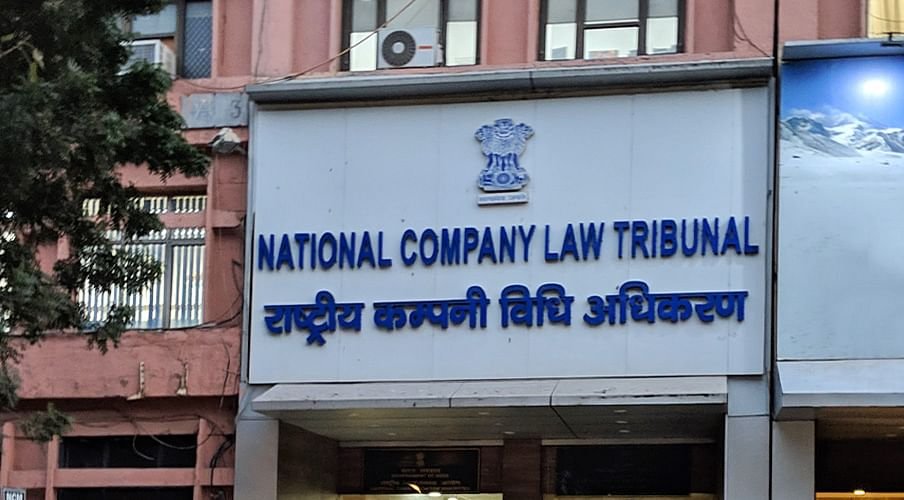The National Company Law Tribunal (NCLT) on August 28 denied a petition by Mohan Clothing Company Private Limited (Mohan Clothing), a lessor, to return over 11,696 unsold items of its merchandise. This decision was a relief for Future Lifestyle Fashions Limited (Future), a Kishore Biyani group company that is currently undergoing the corporate insolvency resolution process (CIRP). The case is titled “Mohan Clothing v. Bank of India.”
The goods were indeed supplied by Mohan Clothing to Future Lifestyle, according to a bench consisting of Judicial member Kuldip Kumar Kareer and Technical member Anil Raj Chellan. However, the moratorium in effect as a result of the CIRP prevents the property from being recovered from Future Lifestyle, the corporate debtor.
Future Lifestyle Fashions, which owns retail properties such as Central and Brand Factory, is indebted to over ₹5,700 crore to its creditors, with the majority of the debt owed to financial creditors, which include 11 banks.
The Mumbai division of the NCLT directed the initiation of CIRP against Future Lifestyle on May 4, following the acceptance of a petition from the Bank of India.
The retail stores of Future Lifestyle were supplied with goods on a “sale or return” premise by Mohan Clothing, a long-standing supplier of fashion apparel to the Future group.
The products in question were shirts, trousers, jackets, and accessories marketed under the brands ‘Blackberrys’ and ‘Blackberrys Casuale’.
Despite numerous legal demands and notices, Future failed to return them.
Mohan Clothing contended that the unsold inventory should be returned. The company referred to a Memorandum of Understanding (MoU) dated March 2, 2020, which delineated the terms of their supply agreement. Nevertheless, Future and other respondents contested the MoU, asserting that it was invalid due to the absence of signatures from key representatives of the Future Lifestyle.
Future Lifestyle and its resolution professional argued in their affidavit that Mohan Clothing’s claim was undermined by the absence of a signed MoU. They also contended that the return of the products was impeded by the moratorium under Section 14 of the Insolvency and Bankruptcy Code (IBC), which prohibits the recovery of property during the CIRP.
It was argued that the moratorium’s purpose is to preserve the corporate debtor’s assets during the CIRP in order to facilitate an orderly resolution and to preserve the company as a continuing concern.
The NCLT determined that the products were indeed supplied to Future, despite the fact that Mohan Clothing had not submitted a signed MoU. This evidence included email correspondences that acknowledged the supply of goods.
However, the NCLT maintained the moratorium, which forbids the recovery of property from the corporate debtor during the insolvency resolution period.
The tribunal emphasized in its order that the term “property” as defined under Section 3(27) of IBC encompasses commodities. The recovery of any property in the possession of the corporate debtor is prohibited by the moratorium under Section 14(1)(d).
It was determined that the moratorium is adequate to safeguard the products in the possession of the corporate debtor.
“Consequently, it is evident that the term “property” (rather than “assets”) has been defined in accordance with s. 3(27) of the Code to encompass goods. The term “occupied by” would be equivalent to or equivalent to being in actual physical possession of or being used by, as opposed to the term “possession,” which would indicate possession as either constructive or actual, and would, in turn, encompass legally being in possession, despite not being in physical possession. Consequently, the Bench is not particularly interested in delving into the issue of ownership or title to the goods that the Applicant supplied to the Corporate Debtor, as the Corporate Debtor’s actual physical possession of the goods is sufficient to warrant protection under the moratorium u/s 14(1)(d) of the Code, according to the order.
The tribunal also observed that the corporate debtor’s capacity to continue operations as a going concern would be negatively affected by the return of the products.
“If the goods are ordered by the Tribunal to be returned to the Applicant (Mohan Clothing), then it will affect the status of the corporate debtor as a going concern which is against the true spirit and intent of the Code,” according to the NCLT.
Consequently, it determined that the unsold products could not be reclaimed during the CIRP period.
Nevertheless, the NCLT directed the resolution professional to expedite the substantiation of Mohan Clothing’s claim for the outstanding amount of ₹8,10,03,206, which had been pending since May 18, 2023.
The tribunal’s order also stipulated that Mohan Clothing is entitled to compensation for the sale price of commodities sold by the corporate debtor after the insolvency commencement date, in accordance with the agreed-upon terms. Mohan Clothing may reclaim the products in accordance with the law if they remain unreturned after the CIRP period.
Following its flagship firm Future Retail Ltd and logistics and infra subsidiary Future Enterprises, which are also undergoing liquidation and insolvency proceedings, Future Lifestyle is the third company of the Kishore Biyani-led Future Group to face CIRP due to loan defaults.
Advocate Aradhnan in collaboration with Advocate Aman Arora Additional merchandise was introduced by Mohan Clothing.
The respondents were represented by Advocate Nausher Kohli and Advocate Nandita Bajpai.
Future Lifestyle Relief as NCLT rejects lessor’s request for the return of unsold merchandise



